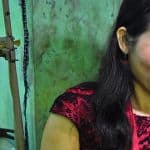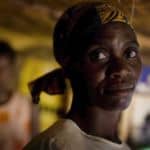Supporting Women-led Businesses in Sub-Saharan Africa During COVID-19: Strategies to Survive and Thrive
Prior to COVID-19, Najimah Katete, the founder of GO5 Packaging Ltd. – a Ugandan manufacturer of environmentally friendly shopping bags – was fundraising to purchase machinery to increase her production capacity. Katete launched GO5 in 2006 when Uganda first imposed a ban on single-use plastic polythene bags. Her vision is to make the environment safer by producing eco-friendly alternative packaging material. With the ban on plastics being enforced across other East African countries, GO5 was poised to increase its revenues locally and expand to Tanzania and Burundi.
Unfortunately, COVID-19 has interrupted those plans, as many governments – including those in Africa – have enacted travel restrictions, full or partial lockdowns, and border closures to curb the spread of the virus. These measures, while necessary to save lives, have adversely affected countless livelihoods and enterprises, putting the very survival of many small and growing businesses (SGBs) at risk. These businesses are struggling with a significant drop in revenues, as well as with liquidity and human capital issues. For its part, GO5 is experiencing a significant drop in bag sales due to the closure of many shopping centers, while still incurring costs such as rent and salaries.
The Challenges Facing Women-Led Businesses
In addition to these challenges, women-led businesses like GO5 face other obstacles, like limited access to finance, labor and skills gaps, exclusion from key networks, as well as social and legal constraints. According to the World Bank report, Profiting from Parity: Unlocking the Potential of Women’s Business in Africa, women often do not have the same access as men to large and diverse social networks that can support the growth and competitiveness of their business. This presents yet another COVID-related challenge, as it could affect their awareness of relief packages and programs that can benefit their businesses during this time. Women also typically control fewer assets than men, affecting their capacity to invest in their business and access large enough loans, which could further hamper their access to liquidity to weather the storm. Moreover, due to social norms, women entrepreneurs face the unique burden of dealing with this crisis in their businesses while managing increased household responsibilities. This means that their resources – both time and money – are further constrained. As Katete, who is a mother of two young boys, says, “With COVID-19, both work and my home responsibilities have increased significantly. With the lockdown, I have lost my house help. I am now responsible for ensuring my kids are fed and for keeping them busy while also catering to my business. I have no time for myself. It is easy to burn out.”
Many laudable efforts by the public and private sectors are already underway to support SGBs through this crisis. For example in Kenya, the government lowered the Turnover Tax rate for SMEs from 3% to 1%. Meanwhile, many banks – such as GTBank in Nigeria – are offering loan repayment moratoriums to their SGB clients. However, much more still needs to be done to ensure that SGBs, which play a critical role in driving social and economic growth in sub-Saharan Africa, get the liquidity, access to capital and business support they need to survive the crisis and thrive once it’s over. And special attention must be given to address the specific challenges faced by female entrepreneurs who, in countries like Uganda, account for around 38% of total business owners (according to the Mastercard Index of Women Entrepreneurs 2019).
How to Support Women Entrepreneurs in Africa
To better serve these women entrepreneurs, governments, financiers and other ecosystem players need to apply a gender lens approach when designing COVID responses to support SGBs. This includes leveraging women-focused organizations to increase awareness about programs these entrepreneurs might be eligible for, as well as minimizing the hurdles these businesses face when accessing financing (e.g.: eliminating rules around collateral requirements). It also includes designing specific financial instruments, such as moveable property lending, to better meet their needs – along with actively collecting and tracking gender-disaggregated data across key indicators, to assess impact and identify new potential insights for women-led businesses. Support interventions should also include technical assistance facilities to provide women-led businesses with advisory services to help them make informed decisions and adjust their business models, enabling them to survive the pandemic while setting themselves up for post-crisis growth. Specific business support needs include scenario planning, cost optimization, liquidity management and legal advice on contract negotiations.
On another end, women-led businesses themselves have an opportunity to take key steps internally to navigate these turbulent times. First, they need to reassess their business models, adapting them to become more resilient to likely changes in customer demand and supply chain disruptions – and if applicable, to position themselves to take advantage of opportunities created by the pandemic. For instance, they may be able to re-purpose their assets to provide needed products or services, e.g.: manufacturing personal protective equipment, leasing trucks to companies providing essential food or cargo delivery, and leveraging technology to introduce new product offerings or delivery channels online.
 That is what Najimah Katete did. She realized that the environmentally friendly fabric she was using to produce shopping bags could be repurposed to make face masks. She and her team learned to stitch these masks, and are now producing them for sale to local communities and pharmacies across Uganda. In repurposing, she added a new revenue line that will help sustain her business in the medium term. As she put it, “When we started having more COVID-19 cases in Uganda, I had to think of what to do to adapt. I decided to work with what I had to survive.” Open Capital is currently supporting GO5 to raise capital to increase their production capacity, develop a sales, marketing and distribution plan for the face masks, and build a strategy to reorient the business in the longer-term to adapt to changes due to the pandemic.
That is what Najimah Katete did. She realized that the environmentally friendly fabric she was using to produce shopping bags could be repurposed to make face masks. She and her team learned to stitch these masks, and are now producing them for sale to local communities and pharmacies across Uganda. In repurposing, she added a new revenue line that will help sustain her business in the medium term. As she put it, “When we started having more COVID-19 cases in Uganda, I had to think of what to do to adapt. I decided to work with what I had to survive.” Open Capital is currently supporting GO5 to raise capital to increase their production capacity, develop a sales, marketing and distribution plan for the face masks, and build a strategy to reorient the business in the longer-term to adapt to changes due to the pandemic.
Other women-led enterprises should take a similar approach, outlining various scenarios and mitigation strategies across all facets of their business, from workforce and customers, to products and supply chains. In addition, now more than ever, women entrepreneurs must be more vocal and assertive to get the support they need. They should leverage their networks and join associations to access information and financial and technical support, as well as to advocate for enabling policies and interventions. They should not hesitate to reach out to their banks/investors to ask for moratoriums and other support measures, or to re-negotiate loan terms and other contracts.
The impact of COVID-19 will be long-lasting, with most African economies expected to experience a slowdown in GDP growth over the coming 12-18 months. McKinsey estimates that “Africa’s GDP growth in 2020 could be cut by three to eight percentage points.” Nevertheless, with the right internal measures – and external support in terms of capital and technical assistance from their governments and financiers – many women-led businesses will be able to weather these challenges and continue to be a driving force for the long-term growth of the continent.
Nathalie Gogue Ebo is a Principal and Head of Gender Practice, and Angela Kerubo is a Project Leader and Head of Talent Practice, at Open Capital.
Photos courtesy of the authors.
- Categories
- Coronavirus



